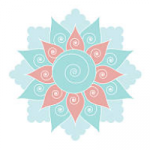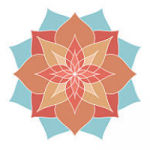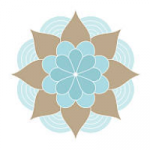Ayurveda means “science of life”. An ancient Indian holistic medical system based on achieving physical and mental harmony with nature which has been practised for more than 5000 years. Ayurveda is a complete way of life. As a holistic health system comprising diet, Yoga, massage, detoxification, herbal remedies, meditation and daily lifestyle, Ayurveda improves not only a person’s health, but also their well being, behaviour and state of mind.
Ayurveda is prevention-oriented, is free from harmful side-effects and treats the root cause of a disease rather than just the symptoms. Ayurveda views illness as caused by an imbalance in a person’s physical or mental constitution and therefore seeks to gently bring a person’s body and mind back into a healthy balance.
Marma Massage
A Marma point is defined as an anatomical site where flesh, veins, arteries, tendons, bones and joints meet
up. There are 107 Marma points throughout the body. Each point has it’s own intelligence and consciousness, which co-ordinate with the mind and body. This ancient form of treatment involves using the fingers and heel of the hand to stimulate the Marma points thereby promoting physical and mental rehabilitation. As with Acupuncture, these points correspond to internal organs and systems of the body which respond to physical stimulation. Specific oils are used for individuals having
specific dosha types of vata, pitta and kapha.
Doshas
Ayurveda teaches that health is maintained by the balancing of three subtle energies known as Doshas – Vatta (Wind), Pitta (Heat) and Kapha (Earth and Water). Disease is regarded as an imbalance between these three elements, so imbalance needs treatment rather than infection. Ayurveda seeks to treat the mind and body according to a person’s Dosha using a system combining diet, herbal remedies, detoxification, Yoga, Ayurvedic massage, lifestyle routine and behaviours
which stimulate positive emotions.

Body Type Vata – Air and Space
Vata Dosha is the principle of movement in all living organisms and is a combination of the elements air and space. Vata Dosha is closely related to the nervous system. The Vata dosha controls all movement in the body, including breathing, digestion, and nerve impulses from the brain.
When Vata is out of balance, anxiety and other nervous disorders may be present. Digestive problems, constipation, cramps, and even premenstrual pain usually are attributed to a Vata imbalance.
Vata-type people are generally thin and find it hard to gain weight. Because of this, Vatas have very little energy reserve and can tire easily and get themselves out of balance.
Vata mind/body types often have difficulty falling asleep or staying asleep. Their minds are active, imaginative, and restless and may be hard to quiet down at night. They need a lot of sleep or they become groggy and ineffective.
The most important thing to know about Vata is that it leads the other doshas. Vata usually goes out of balance first, which causes the early stages of disease. More than half of all illnesses are Vata disorders. Balancing Vata is important for everyone, because when Vata is in balance, Pitta and Kapha are generally in balance as well.
Balanced
Mind: creative, spiritual, tranquil, Enthusiastic.
Body: all movements, blood flow, nerve impulses, fast in actions, emotions.
Imbalanced
Mind: fear, anxiety, stress, worry, insomnia, fatigue, indecisive, absent minded, poor memory.
Body: hyperactivity, dry skin, constipation, gas, arthritis, osteoporosis, PMS.

Body Type Pitta – Fire and Water
Pitta Dosha is the principle of transformation in all living organisms and is a combination of the elements fire and water. Pitta Dosha is closely related to the digestive system, metabolism, enzymes and glands in the body.
Pitta-type people are generally of medium size and well proportioned. They have a medium amount of physical energy and stamina. They also tend to be intelligent and have a sharp wit and a good ability to concentrate.
Fire is a characteristic of Pitta, whether it shows up as fiery red hair or a short temper. Since Pittas’ body temperature is generally warm, Pitta types can go out of balance with over exposure to the sun. Their eyes are sensitive to light. Pittas work hard all day and sometimes have trouble turning off their active minds to go to sleep. They need to take some time between work and sleep to really wind down and relax.
Pitta dosha leads us to crave moderation and purity. We rely on Pitta to regulate our intake of food, water, and air.
Any toxins, such as alcohol or tobacco, show up as a Pitta imbalance. Toxic emotions such as jealousy, intolerance, and hatred also should be avoided to keep Pitta in balance for optimum health.
Balanced
Mind: intelligence, memory, discrimination.
Body: metabolism, digestion, eyes, blood, skin, brain, heart.
Imbalanced
Mind: anger, hate, controlling, excessive competitive drive, hostility, irritability, hot temper.
Body: heart burn, stomach aches, rashes, hypertension, nausea, migraines.

Body Type Kapha – Water and Earth
Kapha Dosha is the principle of stability and maintenance in any living organism and is a combination of the elements water and earth. Kapha Dosha is closely related to the lymphatic and immune system and is responsible for the growth of the individual.
Kapha-type people tend to have sturdy, heavy frames, providing a good reserve of physical strength and stamina. This strength gives Kaphas a natural resistance to disease and a generally positive outlook about life.
The Kapha dosha is slow, and Kapha types tend to be slow eaters with slow digestion. They also speak slowly. They are calm and affectionate but, when out of balance, can become stubborn and lazy. They learn slowly, with a methodical approach, but also retain information well with a good understanding of it.
Kapha dosha controls the moist tissues of the body, so a Kapha imbalance may show up as a cold, allergies, or asthma. This is worse in Kapha season, March through to June. Cold and wet weather aggravates Kapha. They should not dwell in the past or resist change. They need lots of exercise and need to be careful not to overeat. Kaphas need stimulation to bring out their vitality.
Kapha dosha teaches us steadiness and a sense of well-being.
Balanced
Mind: love, nurturing, compassion, patience.
Body: builds, strengthens, nourishes, lubricates, protects, fat, fluid, reproduction.
Imbalanced
Mind: greedy, envy, holds grudges, possessiveness, attachment, depression, cloudy-headed.
Body: slow, heavy, procrastinate, hoard and store energy.
